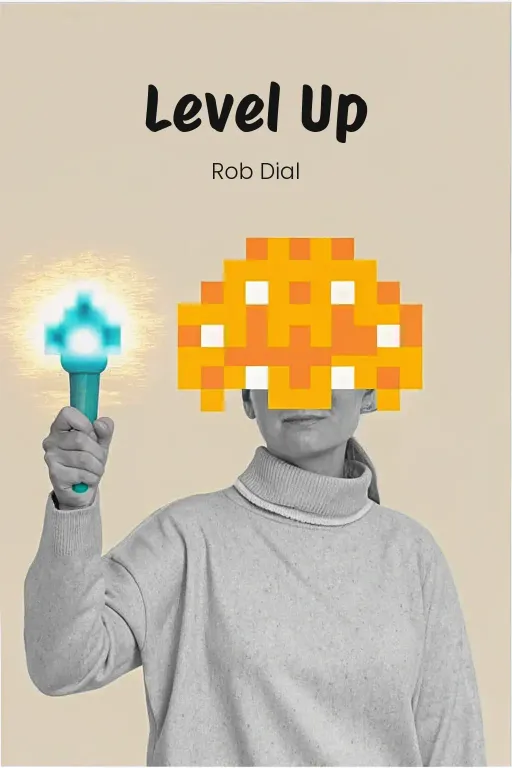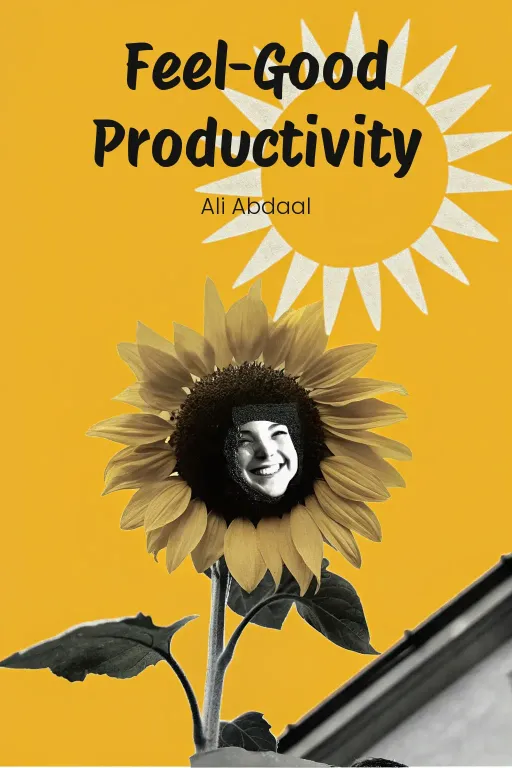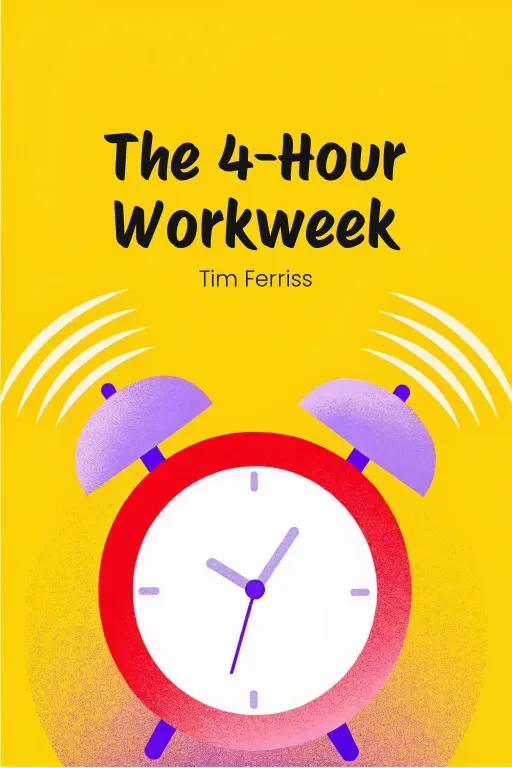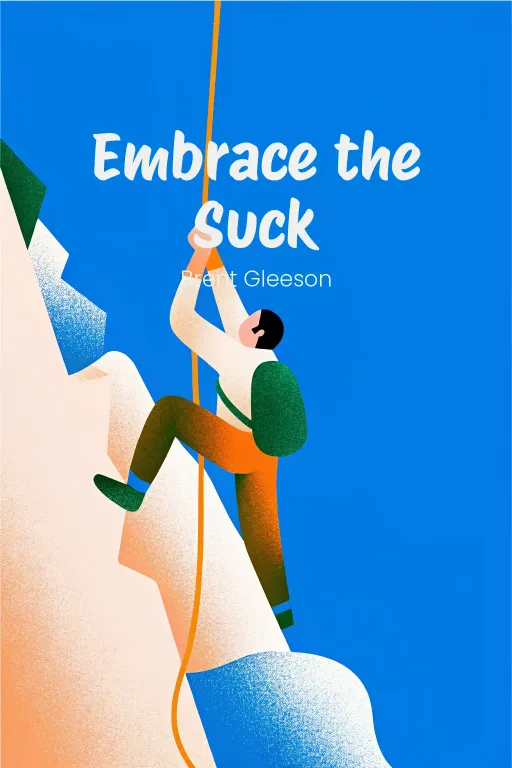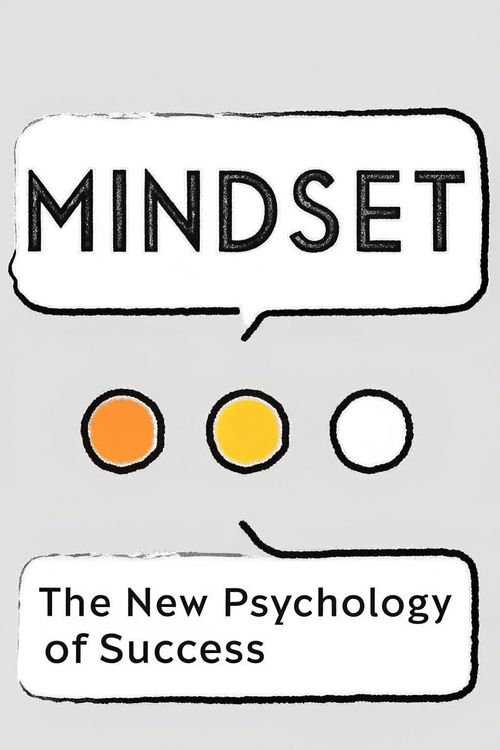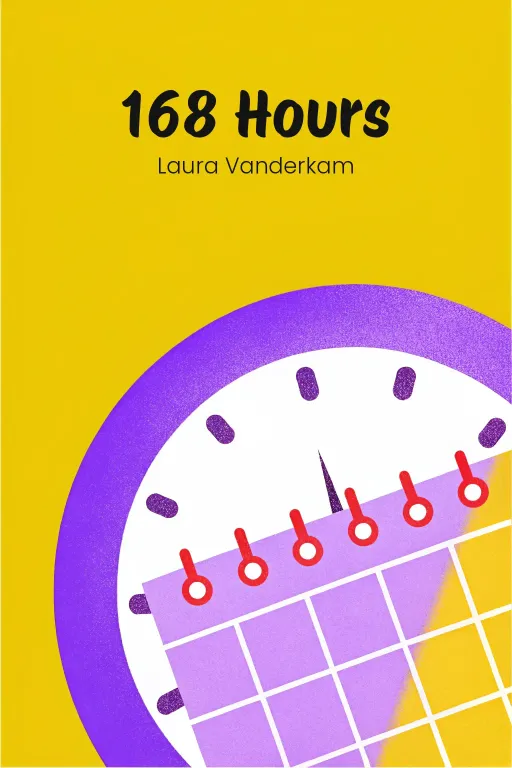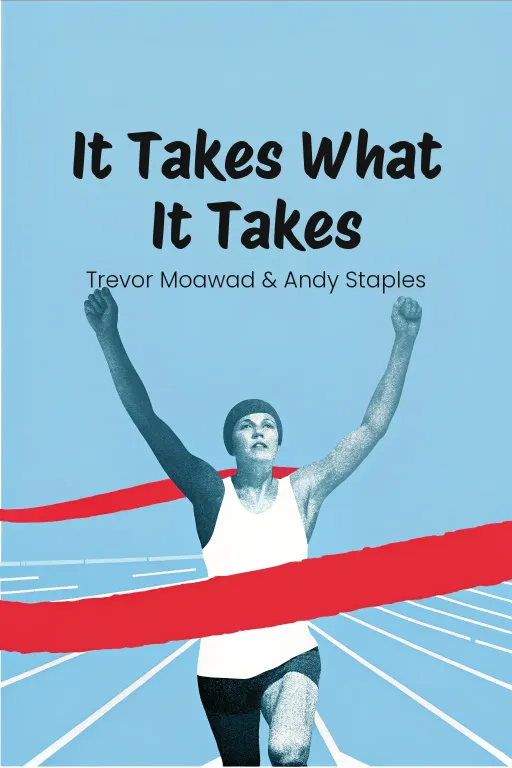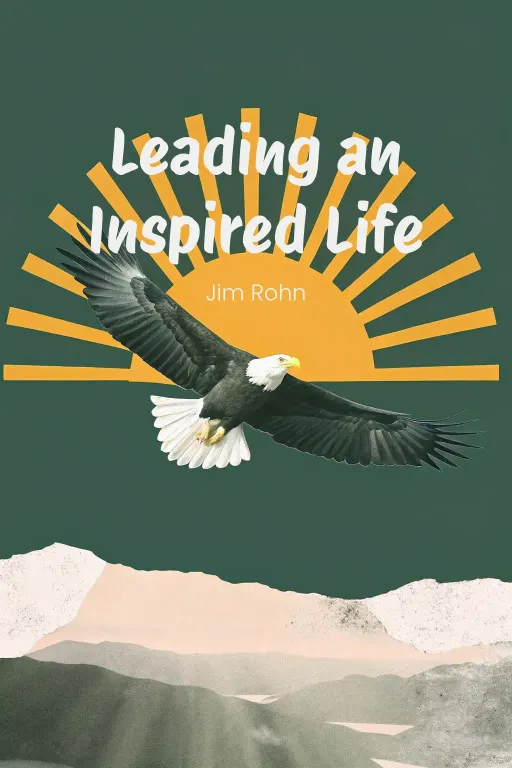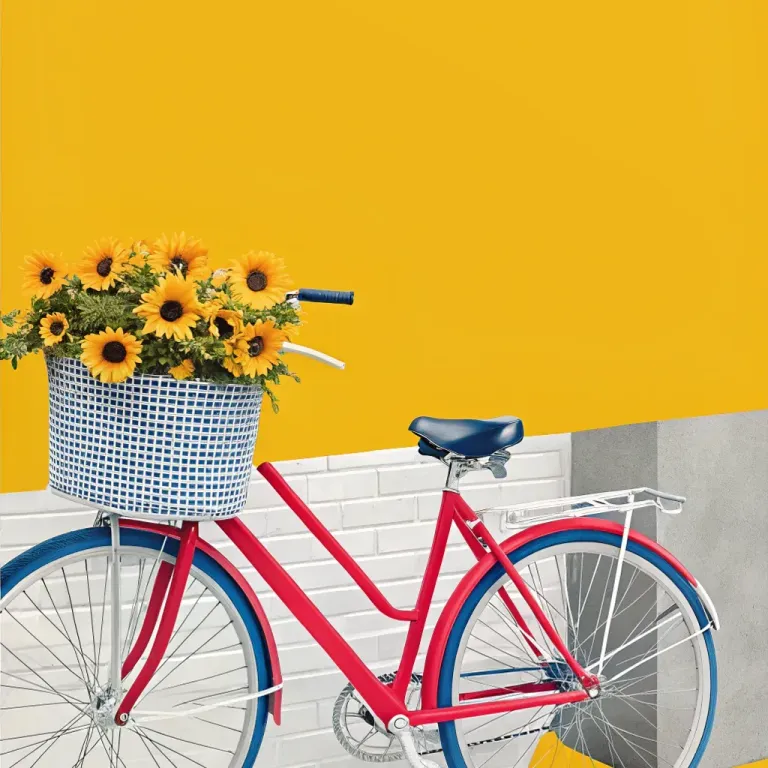
Work Less, Play More: Boost Productivity!
Podcast by Beta You with Alex and Michelle
How to Do More of What Matters to You
Work Less, Play More: Boost Productivity!
Part 1
Alex: Hey everyone, welcome back! Let me ask you something: does the word "productivity" instantly conjure up images of burning the midnight oil, endless to-do lists, and that nagging feeling that you're just not doing enough? What if I told you there's a way to actually enjoy being productive? Michelle: Hold on a second. Productive and enjoyable? Without the usual descent into caffeine-fueled madness? I'm a little skeptical here, Alex, but I'm definitely listening. Go on. Alex: Today, we're diving into Feel-Good Productivity by Ali Abdaal. This book completely reframes the whole "hustle" mentality, suggesting that productivity isn't about pushing ourselves to the absolute limit. It's about aligning our tasks with what genuinely brings us joy, energy, and a sense of purpose – transforming those dreaded tasks into things we actually want to do. Michelle: Okay, sounds like some kind of productivity paradise. What's Abdaal's secret? Some groundbreaking app, a mystical journaling method, or – dare I say – a strategy involving napping in a hammock? Alex: Not quite! It's actually a holistic approach that revolves around play, personal alignment, and sustainability. The book combines scientific research, real-life anecdotes, and practical tips to show us how to conquer challenges like procrastination and burnout. The goal is to create systems that enrich our lives, not make them harder. Michelle: Play, alignment, and sustainability, eh? You've piqued my interest. What are we going to explore today? Alex: We're unpacking three major game-changers. First, we'll explore how incorporating play can unlock creativity in ways that traditional methods simply can't. Second, we'll look at how shifting our mindset from "I have to" to "I choose to" creates a personal sense of empowerment that fosters lasting motivation. And finally, we'll discuss the often-overlooked importance of social connections – they're like charging stations for our energy and focus. Michelle: Play, choose, and connect... a trio designed to keep my inherent cynicism in check, it seems. Alright, let's see how this plays out.
Play as a Catalyst for Productivity
Part 2
Alex: Alright, Michelle, let's dive right in with our first idea: play as a productivity booster. Now, this might sound a bit strange at first, right? I mean, usually when we think of getting things done, we think of discipline, laser focus, and good old-fashioned hard work. But this book makes a really interesting argument for incorporating play. It basically says that play isn't just about having fun, it can actually revitalize your creativity and tap into what really motivates you. Michelle: Intrinsic motivation, huh? Isn't that just a fancy way to say, "Do it because you love it"? Alright, I'll bite. Why is this “play” thing so transformative? Seems like a convenient excuse to avoid actual work, doesn't it? Alex: Not at all! Let’s think about play more as a mindset than a distraction, okay? The book gives this amazing example: Richard Feynman. He was a Nobel Prize-winning physicist, super smart, but even he hit a point where he felt totally stuck. Michelle: Feynman? Seriously? The guy who basically figured out how the universe works lost his mojo? Alex: Exactly! I mean, after his wife passed away, he just lost his passion for physics, that spark just wasn't there. Then, one day he saw a student tossing a plate in the air in the cafeteria, he was just fascinated by how it wobbled as it spun. Now, this wasn't some massive scientific mystery, he just thought it looked cool. So, he started exploring the physics of that wobble purely out of curiosity, just playing around. Michelle: Okay, I'm guessing this isn't just a story about a genius procrastinating in the lunchroom? Alex: Definitely not! By re-engaging with physics in that playful, lighthearted way, he reignited his passion for research. That simple fascination led him to make some huge discoveries in particle physics–the kind of stuff that won him that Nobel Prize. Michelle: So, let me get this straight, he wasn't chasing deadlines, success, or prestige. He was just playing around with an idea because it was interesting. And that playful curiosity is what took his work to the next level? Alex: Exactly! And that's a major point here: creativity, productivity, and success don't always come from pure, hard, grinding work. Sometimes they come from joy, curiosity, and giving yourself the freedom to explore without an agenda. Michelle: Okay, but Feynman was, you know, Feynman, a total genius. Is this whole “play as productivity” thing really something the rest of us regular folks can use in our day-to-day lives? Alex: That's where the neuroscience and psychology come in. Studies show that when we engage in play, it triggers something called divergent thinking. Basically, that's just thinking outside the box, exploring lots of solutions instead of one single path. Games, puzzles, fun activities, they all help increase your brain's ability to be creative, and lower your stress levels too. Michelle: Wait, so you're saying that when I sneak off to play chess in the afternoon, I'm not avoiding work, I'm actually making my brain stronger? Alex: Precisely! And it's not only about chess. The book also talks about creating "flow states," those moments where you're so into an activity that time just disappears. Psychologist Mihaly Csikszentmihalyi made this idea of flow popular–he said that it’s the secret to both feeling fulfilled and performing at your best. Michelle: Flow... Let me guess: it's that sweet spot where the task isn't too easy, isn't too hard, and you actually want to do it. Alex: Bingo! Think about athletes who are "in the zone" during a game, or how artists lose themselves when they're creating something. You're just present, engaged, and totally absorbed. But here’s the deal: you don't have to be an Olympian or a painter to get this. Playful activities, focused on enjoyment instead of results, can create that flow. Whether you're writing a report or even tidying up your workspace. Michelle: Alright, alright, let's make this practical. How can someone take this whole theory of play and actually use it on a regular, boring Tuesday afternoon at their desk? Alex: Great question! The book has some really helpful tips, starting with figuring out your "play personality." According to Dr. Stuart Brown, there are different types of players, like Explorers, Creators, or Storytellers. And depending on your personality, you can tweak your tasks to make them feel more playful and natural. Michelle: So, an Explorer might try learning something new? And a Storyteller... what, turns an expense report into an epic saga? Alex: Exactly! It’s about injecting your own style of play into even the smallest activities. Another tip is to reframe those boring tasks by asking yourself, "How can I make this fun?" Can you listen to music while doing a chore? Can you challenge yourself to finish emails faster by turning it into a game? Stuff like that can really reignite some energy. Michelle: I'm intrigued. But a part of me still thinks adding fun to work is a luxury, not something everyone can do. People are drowning in deadlines–they can't turn every task into a round of Candyland, right? Alex: That's where the reframing comes in. Productivity isn't about ignoring the hard stuff; it's about finding ways to deal with it with less resistance. By adding elements of fun, or letting curiosity lead the way, even those demanding tasks can feel less like a battle. I mean, look at Nobel Prize winners like Watson and Crick–they were literally playing with DNA models when they figured out the double helix structure! Michelle: And Alexander Fleming, with his "playful" microbes, wasn’t far behind, I imagine. Alright, you’ve convinced me that there's at least a case for play–even in serious work. The real challenge is learning to balance that with everything else on our plates.
Personal Power and Intrinsic Motivation
Part 3
Alex: So, moving on from the power of play, let's talk personal power and how it boosts productivity. This idea is all about shifting your mindset, turning “I have to” into “I choose to.” It's amazing how that simple change can unlock motivation and make you feel like you own your work. It all comes down to autonomy, how you look at failure, and bringing genuine enthusiasm to what you do. Michelle: Okay, so no more, "Ugh, it's Monday, I have to wade through my inbox," but instead, "Hey, I choose to dive into this email chaos!"? Please excuse my skepticism creeping in here, Alex. Simply “choosing” something doesn't suddenly make it fun, does it? Alex: Well, it might not make every task a blast, but it definitely changes how connected you feel to the work – you regain a sense of control. The book really digs into self-determination theory, which highlights three key psychological needs that drive intrinsic motivation. Michelle: Let me guess, donuts are involved? Alex: Almost! It's autonomy, competence, and relatedness. Autonomy is that feeling of freedom—you're acting out of choice, not because you have to. Competence is about feeling capable, believing you can actually master something. And relatedness? That's feeling connected, like you're part of something bigger. When you meet these needs, you're not just completing tasks, you're actually motivated to engage with them. Michelle: Okay, I admit, autonomy does sound good. But how do you actually make that jump – going from having to do something to choosing it? Especially when you're stuck with stuff that's just plain awful? Alex: It starts with how you frame your responsibilities. Instead of groaning, "I have to write this report," try saying, "I choose to work on this report because it will help us nail down our strategy for next quarter." The task itself doesn't change, but how you approach it does—you see it as deliberate, purposeful, and within your control. Michelle: So, you're playing Jedi mind tricks on yourself. "This isn't torture—it's a choice." Alright, that might work sometimes, but what happens when things go south? How do you keep up this mindset when you faceplant? Alex: Great question! The book goes deep into reframing failure—seeing it as data rather than defeat. Mark Rober, a former NASA engineer, did an experiment where he encouraged people to see setbacks as learning experiences. Michelle: Ah, the old "failure is feedback" line. Did anyone actually buy into that? Alex: They did! Here's what happened. Rober split people doing a coding task into groups. One group got negative feedback—like "you lost five points"—and their motivation tanked. The other group got feedback that framed failure as a learning opportunity. Those folks stuck with the task longer and enjoyed it more. Michelle: Interesting. So it's not the failure itself, but how you see it that matters. Alex: Exactly. If you treat failure as an experiment—a chance to find out what works and what doesn't—it changes everything. Mess up a presentation? Don't think, "I failed!" Think, "That was great practice for tackling stage fright." You're building resilience by focusing on growth, not just the outcome. Michelle: I like that. Failure as a training ground, not a death sentence. But let's talk about energy now. Sure, you can reframe failure or choose to embrace tasks, but keeping the momentum going still feels like paddling against the current. What's the secret to staying energized? Alex: Glad you asked! That's where sincerity comes in, rather than just being serious. It's a concept inspired by Alan Watts. Watts argued that focusing too much on outcomes—getting it right—can drain you. Sincerity is about engaging authentically with what you're doing, enjoying the process without obsessing over the results. Michelle: Is this like saying, "It's not whether you win or lose, it's how you play the game?" Alex: Kind of! Sincerity means focusing on exploration and curiosity, not perfection. Think about team projects. If everyone's laser-focused on metrics or "winning," it kills creativity. But when people show up sincerely, sharing ideas openly, collaboration just takes off. Michelle: Okay, so less cutthroat business mogul and more improv comedian – just jump in and build on what's already there. Alex: Totally. It's surprisingly liberating, and it works everywhere. Take that retail worker from the book—Dicks, who turned selling BBQ sauce into an art. Michelle: Ah yes, the adventurous condiment seller. Tell me more. Alex: Dicks was bored by the routine of retail. Instead of just going through the motions, he reframed the task. His goal wasn't just to sell BBQ sauce, but to create a fun, memorable experience. He encouraged customers to sample it playfully, even turning it into an impromptu game. Sales skyrocketed, and his work became enjoyable instead of mind-numbing. Michelle: So he tapped into his personal power by aligning the task with creativity and connection. Honestly, it's brilliant and something anyone could try—not just in retail but anywhere the work feels like a drag. Alex: Exactly! It's a perfect example of transforming mundane tasks by adding sincerity, creativity, and, most importantly, ownership. Michelle: Alright, I'm convinced. This “I choose to” mindset is deeper than I thought. Between reframing failure, practicing sincerity, and embracing autonomy, there's a lot to think about. But I still wonder, what happens when the environment doesn't cooperate? Deadlines, stressed teams, high stakes—how do we handle that?
The Energizing Role of Social Connections
Part 4
Alex: So, with personal power kind of sorted, it makes sense to move into how our connections affect our productivity. I guess you're thinking, "Here comes the teamwork speech, right? 'No I in team,' all that jazz?" Michelle: Something like that! Am I right? Alex: Not exactly the cliché you might expect, actually. The book actually makes the case that our social connections don't just support our productivity, they actively fuel it. The author calls it tapping into "relational batteries." Basically, positive interactions can recharge us, while draining relationships... well, you know, energy vampires. Michelle: Oh, you mean like when that one colleague ambles into your office just to vent, and then leaves you feeling totally wiped while they're skipping off feeling great? Is that kind of what we are talking about? Alex: Exactly that! And there's actually research to support this. Rob Cross and his team call it "relational energy." They’ve mapped workplace interactions, figuring out which relationships energized folks and which ones drained them. The bottom line? The people we interact with, and how those interactions go, seriously impact how productive we are. Michelle: Wow, and here I was thinking the break room was just a risky place to grab coffee! So, these “relational batteries," does this mean we just stick with the people we already like? Realistically, decluttering all the draining people at work isn't always possible. Alex: You're right, it's not just about dodging those tough relationships. It's also about boosting the good ones. The book suggests things like a "comrade mindset" which is shifting from just transactional collaboration to, like, something transformational. Instead of just working near each other, it's about really embracing teamwork and seeing colleagues as allies instead of competitors. Michelle: Okay, but let's see some data! "Transformational collaboration" sounds a bit too motivational-poster-ish without any proof. Alex: Fair point. There was this Stanford study where people solved puzzles. One group thought they were collaborating, even though they were working alone. The other group thought they were totally solo. Guess what? The "collaboration" group worked longer, with more enthusiasm, just because they felt like they were part of a team. That's the "comrade mindset" right there – that connection transforms effort into something more meaningful. Michelle: So just feeling connected gives you a boost? Maybe HR should replace pizza parties with some collaborative puzzles. Alex: But it’s not just fluff, though. The book offers real, actionable stuff like synchronized tasks. Ever notice how singing in a choir or rowing together makes you feel incredibly connected and in sync? Michelle: I get it, but synchronized rowing isn’t exactly my daily routine. Alex: Well, think of the London Writers' Salon. Writers get together in virtual rooms to write in synced 50-minute bursts. Everyone’s working solo, but the shared structure creates this collective energy, and it helps everyone focus. It's a perfect example of collaboration without actually needing direct interaction. Michelle: So, silent coworking gives strength to collective silence. Makes sense for creatives. But what about workplaces where being quiet isn’t an option? Alex: Then what about simple kindness? Random acts of kindness inject positivity into work relationships. Like, imagine making someone a cup of tea. The author, a doctor, even did this during crazy shifts, remember? That small act created connection and support, especially during the pandemic chaos. Michelle: Tea diplomacy! I could get behind that, but I'm just picturing my inner critic saying, "Who has time for tea when deadlines are looming?" Alex: Well, that’s what’s so cool – these ideas are scalable. A quick compliment, a sincere thank you, or offering help if someone's struggling – these little things build those connections, which then energize everyone. Even small changes in how we interact can have a big impact. Michelle: Okay, I'm starting to see it. But energy doesn’t always flow evenly. What about asking for help? It feels like a major energy drain, something I think a lot of us struggle with, maybe even me? Alex: That's a serious issue, Michelle. Culturally, a lot of people see asking for help as weakness, but the book suggests thinking of it as an act of connection. Benjamin Franklin understood this. You know the story about him borrowing a book from a political rival? It turned their tense relationship into a friendship. Michelle: Borrowing books builds bridges? Who knew the library was a social powerhouse? Alex: It's about being a little vulnerable, and it invites trust and sparks collaboration It can also strengthen bonds. Research even shows people are way more willing to help than we usually think. Besides lightening your load, asking for help creates space for shared effort, and that energizes any relationship. Michelle: That’s pretty wild, right? We assume asking for help burdens people, but actually, it kicks off a bit of collective momentum. I like that. It’s a new spin on “many hands make light work” – more like "many hearts share the load." Alex: Perfectly said! That links back to the whole idea, that our connections amplify us. Whether it’s syncing up, showing kindness, or asking for help - it’s all about building ecosystems of mutual energy. Connections aren’t just nice to have, they are a crucial part of real productivity. Michelle: Alex, you got me! This "social energy" thing isn't just fluff. If stronger connections are the key to keeping our batteries charged, then it might just be worth investing in. So, tea's on me next time. But don’t hold your breath for synchronized rowing.
Conclusion
Part 5
Alex: So, there you have it... three pretty transformative ideas to rethink productivity: embracing play to spark creativity, choosing ownership over obligation to reclaim your power, and leveraging social connections to fuel your energy. It isn't just about doing more, but about doing it in a way that truly aligns with joy, purpose, and human connection. Michelle: You know, I came into this a little skeptical, but I have to admit there's something really refreshing about this. Productivity doesn't always have to mean pushing ourselves to the limit. If Nobel laureates and BBQ sauce moguls alike can discover breakthroughs through play and genuine connection, maybe there's hope for the rest of us. How would someone listening apply this to their modern urban life? Alex: Exactly! The key takeaway here is that productivity shouldn't feel like a burden. By incorporating a little play, reframing tasks with intention, and strengthening relationships, we can all work smarter and feel better. So, Michelle, what's one thing you're actually going to try? Michelle: You know what? Maybe I'll actually try this "play mindset" the next time I'm hitting a wall on a project. And who knows, maybe I'll even transform some of my “I have to”s into “I choose to”s—but don't expect to see me juggling during meetings anytime soon. Alex: Fair enough! For everyone tuning in, just think about one small change you can incorporate to bring more alignment, play, or connection into your day. It doesn’t have to be huge—just one small step toward working with more purpose and joy. Michelle: Alright, then, I'll leave you with this—productivity shouldn't feel like some kind of daily battle. If bringing a bit more curiosity and human connection to the daily chaos means that I'm raging at my inbox a little less, well, that's a win in my book. Alex: Perfectly said. Until next time, here’s to redefining productivity—and yes, finding real fulfillment along the way.

